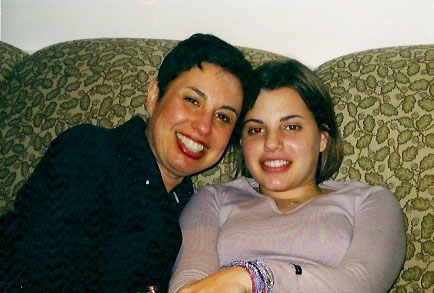My mother died in 2000, before the Age of Facebook. My family placed an obituary in the local paper and called close relatives and friends to let them know. From there, word must have spread quickly, because the sympathy cards came flooding in.
I have kept them all. Every year on the anniversary of my mother’s death — or whenever I need a reminder of people’s kindness — I read the ones that touched me the most. Some are from close friends, but many are from acquaintances, people I hadn’t spoken to in years, or people who knew my mother but didn’t know me very well. A colleague of my mother’s wrote in vivid detail about the last time they’d had lunch together at their favorite restaurant, only days before my mother died. A friend with whom I’d lost touch fondly recalled that when we spoke on the phone as teenagers, I’d become annoyed whenever my mother burst into my room — which happened often — but that my mother and I would usually end up laughing, like friends. Someone I’d barely spoken to in high school mentioned my mother’s wide smile and remarked that my brother and I had inherited it.
These days, my peers often announce the death of a loved one on their Facebook wall. With friends and family spread all over the world but almost always online, this is a practical way to get the word out. Within minutes, the condolences begin to flash up on the person’s wall, providing almost instant words of comfort.
I’ve noticed, though, that these messages are usually short, even perfunctory, lacking the reflective, personal tone of the cards I treasure. And I think social media might be partly to blame: the very features that make Facebook such a convenient and practical form of communication can also make it feel superficial. It’s so easy: You type a few words, hit “send,” and you’re done. No card, no reflection, no stamp. What’s more, social media are by nature public: When you post a message on someone’s Facebook wall, you know the person’s “friends” all can see it, so your instinct is often to keep things relatively impersonal.
The result is that these messages, though sincere, often feel hollow. I’ve noticed this on other occasions, not only when someone posts about the death of a loved one. It’s become commonplace, for example, for close friends to wish each other a happy birthday with the oh-so-original “Happy birthday!” (or my personal favorite, the even lazier “HBD”).
But it’s worth considering how social media affect our conversations about grief specifically. If there is ever a time that someone deserves a thoughtful, personalized message, it’s after losing someone at the center of her world.
Whatever form it takes, your message to a grieving person should show that you took the time to think of them, and of the person they lost. This doesn’t even require that you knew the person who died. One of my college friends who’d never met my mother, for example, wrote that she could tell from funny conversations about our parents over leisurely meals in the dining hall that my mother and I had been very close. The memory of those conversations made me smile even in those very dark days.
After my mother died, so many people said, “I’m there for you.” This statement always meant so much more to me when there was a gesture to go with it, and a thoughtful condolence message was often the perfect gesture. In the grief-filled haze that followed my mother’s death, I wondered how people could go about their lives — waiting for the bus, shopping at the supermarket — when her life and the life I had known were over. Part of what I appreciated so much about the sympathy cards I got was the idea of someone taking time out of their day to go to the store and pick out a card for me, then sitting and trying to come up with the right words — even when, as many said in their cards, there really were no right words. Their effort made me feel a little less alone in my grief.
That’s what comforting a grieving person is really about: connecting. People often feel helpless in the face of another’s grief, which I understand, having been on the other side many times. You feel there’s nothing you can do take away the griever’s pain. And you’re right; the only way you could that is by bringing back the person who died. But you can ease someone’s pain, even if it’s just the tiniest bit, by showing them, with more than five words on Facebook, that they are not alone.
Jennifer Richler is a freelance writer living in Bloomington, Ind. Follow her on Twitter.









